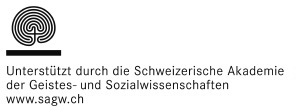How Informed are the Swiss about Covid-19 and Prevention Measures?
Results of a Survey on Information Awareness, Behaviour, and Deficits
DOI:
https://doi.org/10.47368/ejhc.2022.306Keywords:
information awareness, information behaviour, information deficits, informedness, misinformation, Covid-19, SwitzerlandAbstract
Since the coronavirus (SARS-CoV-2) pandemic began, large amounts of (mis)information have been disseminated worldwide. We conducted an online survey in Switzerland (N = 1,129) in April 2021 to ask respondents which information has received too little attention in public discourse, which measures help containing coronavirus infection and Covid-19, and about subjectively perceived Covid-19 misinformation. Content analysis of the open answers revealed that vaccination and its potential side effects, aspects related to political measures, psychological and social aspects, as well as science and research topics deserved more attention in the eyes of the respondents, mostly from politics or media. The most frequently mentioned effective measures were social distancing, wearing masks, general hygiene, and vaccination. Notably, the number of measures mentioned was related to the degree to which the pandemic affected individuals subjectively, trust in public institutions, and their individual level of science-related populism. Swiss residents with less trust in public institutions and who consume less news media on Covid-19 are more likely to believe misinformation on (in)effective measures against the virus. Most respondents encountered Covid-19 misinformation and could name examples, including sources. Education and information use affect the frequency of subjectively encountered misinformation. More highly educated people can name more misinformation instances encountered than less educated people.
Downloads
Published
How to Cite
Issue
Section
License
Copyright (c) 2022 Sabrina Heike Kessler, Miriam S. Cano Pardo, Anna Jobin, Fanny Georgi

This work is licensed under a Creative Commons Attribution 4.0 International License.
The authors agree to the following license and copyright agreement:
a. Authors retain copyright in their work.
b. Authors grant the European Journal of Health Communication the right of first publication online on the internet (on the publication platform HOPE of the Main Library of the University of Zurich).
c. The electronic contributions on the internet are distributed under the „Creative Commons Attribution 4.0 International“- License (CC BY 4.0). This license allows others to copy and redistribute the work in any medium or format, to remix, transform and build upon the material with an acknowledgement of the work's authorship and initial publication in the European Journal of Health Communication . These conditions are irrevocable. The full text of the license may be read under http://creativecommons.org/licenses/by/4.0/.
d. Authors are able to enter into separate, additional contractual arrangements for the non-exclusive distribution of their work, as long as the conditions of the CC BY 4.0 License are fulfilled and initial publication in the European Journal of Health Communication is acknowledged.
e. Authors grant the Editors commercial rights, using a publishing house, to produce hardcopy volumes of the journal for sale to libraries and individuals, as well as to integrate the manuscript, its title, and its abstract in databases, abstracting and indexing services, and other similar information services.
f. This agreement is subject to possible legal disclosure obligations.
g. This agreement is governed by Swiss law. Court of jurisdiction is Zürich.









